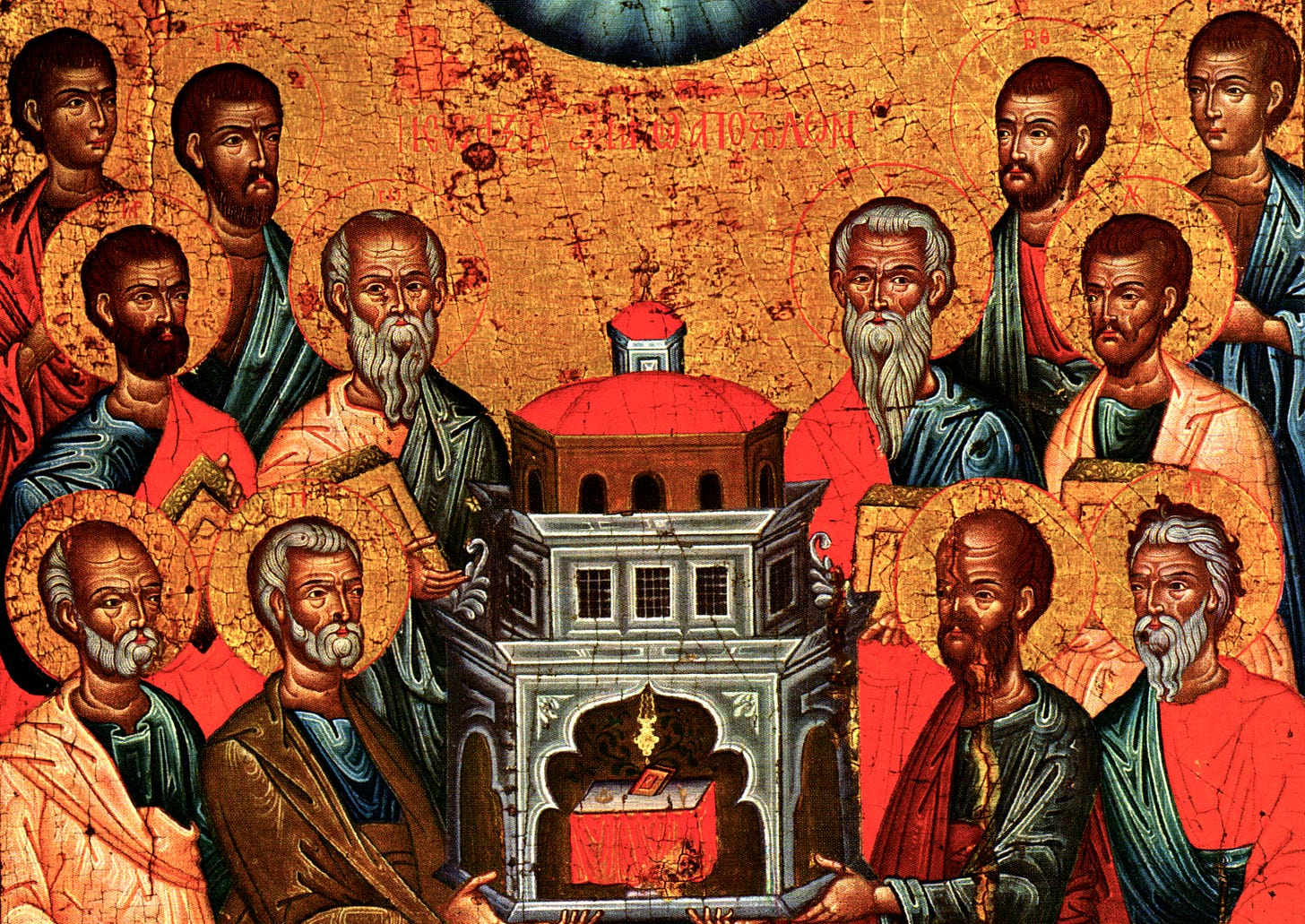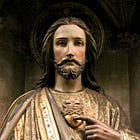Why the Apostles and New Testament were so fierce in condemning heresy
Christ's warnings about false prophets already began to be fulfilled in the New Testament itself.

Christ's warnings about false prophets already began to be fulfilled in the New Testament itself.
Editor’s Notes
Did you miss our 1,000 subscriber milestone post? Check it out here:
In this section, Fr. Coleridge tells us…
How the Apostles saw Christ’s prophecy fulfilled in false teachers within the early Church.
That these men taught heresy under cover of truth, seduced souls, and undermined apostolic authority.
Why the Holy Ghost moved the Apostles to denounce them with such clarity, severity, and urgency.
He shows us that the New Testament itself teaches that heresy is not simply error, but rebellion against God—and that heretics can rise from within the fold to devour it.
For more on the context of this episode, see Part I.
For more on how the Apostles and saints have treated heresy and heretics:
The False Prophets
The Sermon on the Mount (To the End of the Lord’s Prayer)
Chapter XV
The False Prophets. St. Matt. vii. 15—20;
Story of the Gospels, § 34
Burns and Oates, London, 1878
Why did Christ warn of false teachers so early in His ministry?
What is the ‘appetite for destruction’ that drives false prophets?
Why the Apostles and New Testament so fiercely condemned heresy
Having shown how our Lord’s warning applied prophetically to His own time, Father Coleridge now turns to the Apostles, especially St. Paul, St. Peter, and St. Jude, who saw in their own day the very wolves Christ had foretold—and who left inspired testimony of their rise, character, and devastating effects in the Church.
The false teachers in the times of the Apostles
We find St. Paul warning the priests of the Ephesian Church in the discourse which St. Luke records in the twentieth chapter of his history, against the ‘wolves’ that were to enter in among them, not sparing the flock, and against those among themselves who were to arise, speaking perverse things, to draw away disciples after them.1
We find the same Apostle in conflict with false teachers in the Epistle to the Romans, and, still more evidently in that to the Galatians, written also at the same time. We see in this last named Epistle how bitter the attack on him had become, and how it aimed, as such attacks have continually aimed in the subsequent history of the Church, at the separation of Christians into sects and parties, and at the usurpation of the apostolic chairs of teaching.
The Epistles to the Corinthians bear witness to the same tendency, although in them St. Paul is engaged in combating more directly the spirit of division as such, which would break up the body of Christians into a number of personal followings, than that of separation on account of diversity of doctrine.
It is needless to point out how the later Epistles of the same Apostle witness to the growth of the sectarian spirit, from mention of which hardly one of these Epistles is free, even those which are written with such overflowing openness of heart and with such a glow of charity as to intimate friends, as those to the Philippians and Ephesians.
The First Epistle to St. Timothy contains the passage in which St. Paul sketches the heretics of the coming ages of the Church.
‘The Spirit,’ he says, ‘manifestly saith, that in the last times some shall depart from the faith, giving heed to spirits of error and doctrines of devils, speaking lies in hypocrisy, and having their conscience seared, forbidding to marry, to abstain from meats, which God hath created to be received with thanksgiving by the faithful, and by them that have known the truth.’2
The Second Epistle to the same Saint, written when St. Paul was near the time of his martyrdom, speaks yet more strongly.
‘In the last days shall come on dangerous times, men shall be lovers of themselves, covetous, haughty, proud, blasphemers, disobedient to parents, ungrateful, wicked, without affection, without peace, slanderers, incontinent, unmerciful, without kindness, traitors, stubborn, puffed up, and lovers of pleasure rather than of God, having an appearance of godliness, but denying the power thereof.’
These words seem to describe a state of society in which men shall be nominally Christians, but in truth, almost pagans in their manner and principles of life, and yet the Apostle goes on to speak of the evil teachers even of his own day as included under the same description. And he adds that the evil is to be ever on the increase:
‘Evil men and seducers shall grow worse and worse, erring, and drawing into error.’3
In his Epistle to St. Titus, St. Paul tells his disciple to be very short in his dealings with heretics.
‘A man that is a heretic after the first and second admonition avoid, knowing that he, that is such an one, is subverted, and sinneth, being condemned by his own judgment.’4
Father Coleridge Reader is a labour of love. But curating, cleaning up and publishing these texts takes real work.
To keep this project going, and to make more of this treasury available, we rely on reader support. Some posts are reserved for members to sustain this mission.
We’re trying to keep something precious alive.
If you’ve benefited, consider joining us as a subscriber. It makes a real difference.



